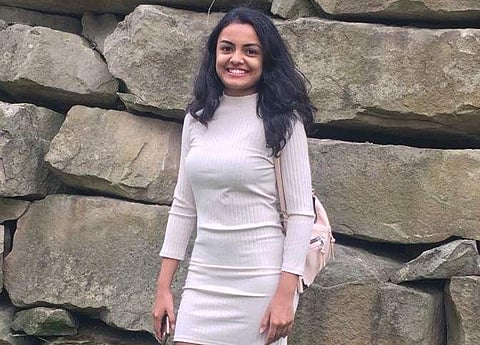

Political parties and the way they work is known to almost everybody irrespective of their age, that's what Tanya Ballal believes. She is a final-year Human Centred Design student from the Srishti Institute of Art, Design and Technology in Bengaluru. But why's a design student speaking about politics? "Why should only our parents discuss politics or understand it? Even youngsters or school-going children have the right to know about it all, after all, we are the future citizens of India." That's why Tanya decided that her final-year project would be about making youngsters understand and build a conversation around different articles in the Indian Constitution, political parties and their agendas.
Project politics FTW
Narrating what led her to pick this project, she says, "In 2018, I went to the University of Michigan for an exchange programme for five months. During the Michigan general elections, I noticed that the university's students guided first-time voters to register and vote mandatorily. I quickly realised that I knew more about the candidates contesting the elections there but not much about the political parties or candidates in my own country. That's when I decided that when I return to India, I must learn about the history of political parties and our Constitution as they go hand in hand."
Back in India, when Tanya approached her mentor about her project idea, he readily agreed. She says, "Though I am a Human Centred Design student, I felt the need for the Constitution to be made accessible to all. As I could not read the whole Constitution, I narrowed it down to articles related to the functioning of political parties," adding, "We all know that when the elections happen, we tend to be influenced by the thoughts and opinions of our family members before casting our vote. But I feel strongly that each one of us must have our opinions when we vote. My project is about starting conversations among people to discuss the political parties in our country."
Game of statistics
Tanya conducted her first workshop on March 11, 2020 and 20 people participated, out of which only three had voted in the elections. "Each of them had their own reasons for not voting. Some of them had their names registered in their hometown but couldn't go. They didn't know until I told them that airlines often drop their prices or offer discounts during election time so that people can go home and vote," explains Tanya. She continues, "Before I began my project, I spoke to a lot of experts, read up on parts of the Constitution and the process of elections, as well as emotional mapping — a powerful geoparticipation tool that helps one understand the journey of the place and its voters. Through my research, I learnt that 46 per cent of the youth are not interested in politics. Therefore, during my workshop, I divided the 20 participants according to their interest level — not interested in politics, somewhat interested and quite interested. This helped me form personas about different people and perform emotional mapping."
The process explained
After all her research, Tanya designed the process of the workshops, "When people participated in the workshop, they first divided themselves into different groups to form their own political parties. I observed that the candidates built their parties in a democratic way — they named their party, designed their own symbol, stated if they're a state or national party and took pride in representing it. Next, I handed out cue cards that included different issues like poverty, healthcare, women safety, education, gender equality and so on. The teams represented on the right side of a sheet of chart the party's ideologies and on the left, they stated different issues. Then, to compare and identify themselves as right, left or centre-leaning, I provided them with the ideology and agenda of different political parties in India."
She continues, "Surprisingly, one of the party was looking at the development of millennials, despite the fact that none of the candidates were millennials themselves. And that is something that most of us want from our politicians — understanding our problems irrespective of the age they belong to and making good decisions. I also asked them their criteria for accepting candidates in their party — many had said educational qualification. The workshop ended with some self-reflection where every individual talked about their criteria for picking a candidate to vote for in the future."
What's next on the cards?
When we ask her about taking this project forward, she says, "This project will not be limited to workshops. I will be providing a tool kit that will include an instruction booklet of why to vote, the registration process, a glossary of 'political' words, cue cards and another booklet of national parties and their agenda. This kit can be used by anyone and contextualised in whichever city they exist."
